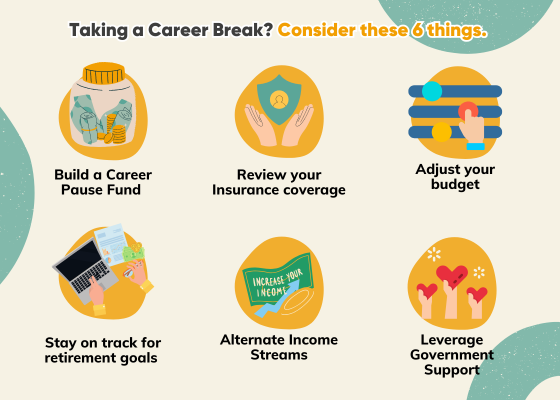Note: It was announced in November 2023 that MoneyOwl will be acquired by Temasek Trust to serve communities under a re-purposed model, and will move away from direct sale of financial products. The article is retained with original information relevant as at the date of the article only, and any mention of products or promotions is retained for reference purposes only.
______________
We all crave financial security for our family, as it provides the foundation upon which we would be able to live life to the fullest and feel financially confident. But how do we ensure that our family is financially secure? Where do we start? This might seem like a complex task to do, especially when there are many parts involved. But the truth is, it doesn’t have to be. Here are 5 simple questions you can use to start assessing your family’s financial security:
1. Is your family sufficiently insured in times of crises?
Having Sufficient Insurance Coverage
The importance of insurance cannot be understated. Think of it as establishing a good defense before building a good offense. Life and health insurance serve as an overarching shield that guards your family against unfortunate events. Insurance is considered an expense and cost in exchange for protection of your income but the key is to buy as much insurance as you need at as little cost as you can. For breadwinners, we recommend Life insurances to replace your income in periods of inability to work due to an illness or disability. Such insurance includes critical illness insurance, or occupational disability insurance. For dependents such as children or retiree parents, it is recommended that they have Health insurances (such as Integrated Shield Plans that supplements MediShield Life) in place to cover any potential large hospital bills arising from illnesses. Sufficient insurance coverage forms the bedrock of a family’s financial plan where every member is insured and protected.
2. Do you have a pool of funds set aside that covers at least 6 months’ worth of family expenses?
Emergency Funds
The recommended amount of emergency funds to have is at least 6 months’ of your family expenses. This is to provide for your family in a period of unforeseen circumstances (e.g., loss of job/retrenchment). This helps you pay for necessary recurring expenses such as bills, mortgage and food – without having to dip into your investments or go into debt.
3. Do you have a family savings ratio of more than 15% of the total household income? Are your debts/loan less than 40% of your household income (if any)?
Savings/Budgeting
It is good to ensure that you make efficient use of your income in order to keep your financial system well-oiled and efficient. Having a surplus from your household income reinforces your family’s ‘shield ‘defenses’, in that you can be well-positioned to adapt to changing life circumstances (such as the growing expenses of a child, or catering for any potential new additions to the family; a new child or even pets). A “Pay yourself first” system should be implemented to set aside your savings amount, before your spending. Budgets are recommended to apportion your spendings, so that you are able to keep your expenses tracked and surpluses are consistent. While certain debts might be necessary (such as mortgage loans), it is wise not to overextend yourself in multiple loans (such as loans for personal purchases). Develop a good habit of saving up for purchases if they exceed your budget for the month.
4. Do you have a long-term sustainable investment portfolio for your family’s future?
An Investment Portfolio for Accumulation
Surpluses also play another key role on the ‘offence’, in that they can be used as ammunition, to advance and accelerate our wealth through investments. Once a strong defence is established, the next step is to take measured risks in order to grow your wealth. Investing is not about getting rich but to able to provide the resources needed to enhance your family’s quality of life, and securing a brighter financial future in a reliable way.
5. Do you have a trusted adviser whom you can trust to periodically review your family’s finances?
Having a Regular Review of Your Financial Health
Lastly, every year or two it would be ideal to do a holistic review of your family finances. A personalised financial plan might consist of features such as an assessment of your financial health, determination of your net worth, estimation and projection of your cashflow with CPF balances, to help you envision what retirement will look like for you. It could also provides recommendations on how to grow your savings, meet short/long term goals, manage your insurance needs/gaps and plan for your retirement. This big-picture approach would help you take control of your financial situation at every stage and ensure that your life goals are always well within range. Just as it is important to keep our physical health in check, so is our financial health.
In conclusion, understanding how to build a well-crafted financial plan for our families is more than mere financial knowledge; it is an act of love and responsibility towards our loved ones. We should also recognise the importance of both knowledge and application. While the principles of financial planning have been theorised for a long time, is it the ability of a person to apply these principles in real-life that is more important and far-reaching. When implemented well, families can create a comprehensive a well-secured financial plan.
Disclaimer:
While every reasonable care is taken to ensure the accuracy of information provided, no responsibility can be accepted for any loss or inconvenience caused by any error or omission. The information contained herein does not have any regard to the specific investment objective(s), financial situation, or the particular needs of any person. Buying insurance is a long-term commitment and should be bought according to your needs, and products’ suitability. The author and publisher shall have no liability for any loss or expense whatsoever relating to investment decisions made by the reader.




